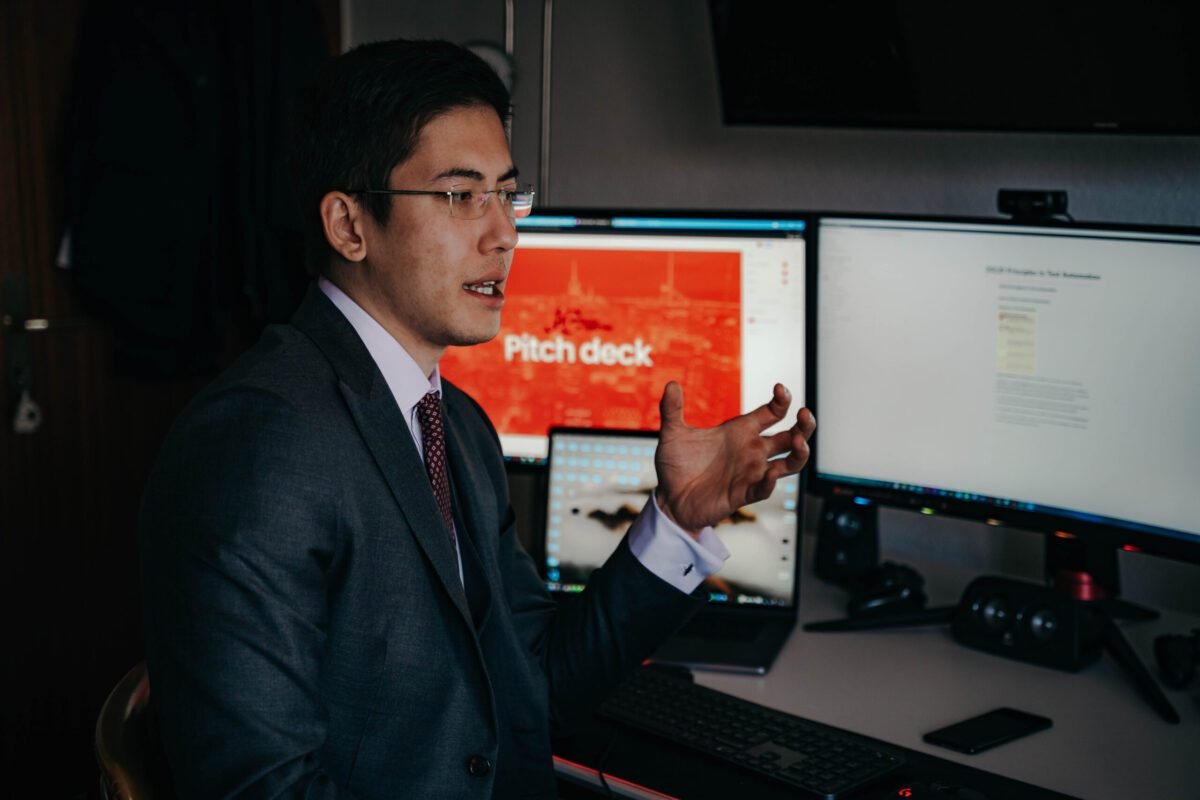I would define leadership as the ability to inspire others in the team to act towards the common purpose of the company.
Eric Dong
Eric Dong is a computer security researcher and entrepreneur especially interested in the potential of using technology to resist centralized power. As founder of Themelio, a new “layer-0” public blockchain designed for a radical paradigm shift in the way public blockchains are used in application stacks, he explains that by decoupling the blockchain from specific applications, they completely avoid the community spats and protocol upgrades that shake the very “code is law” foundations of blockchain security.
Another project he founded is Geph, the world’s most censorship-resilient commercial VPN. In harsh censorship environments like that of China or Iran, most VPNs and anti-censorship tools are trivially blocked, and the ones that work generally rely either on luck or collaboration with censors.
Geph, on the other hand, uses state-of-the-art techniques to actually be virtually unblockable and has survived multiple serious attempts at blocking by the Great Firewall of China. It also uses a unique authentication scheme based on blind signatures that makes it impossible for Geph’s servers to connect usernames with browsing activity, eliminating the additional privacy risks inherent to user authentication and payments.
Let’s learn a little about you and really get to experience what makes us tick – starting at our beginnings. Where did your story begin?
Eric Dong: I think the most important part of my background that explains my interest in decentralized technology, blockchains, and general “cypherpunk” tendencies is my upbringing in both Canada and China. My family often moved between the two countries when I was a child, and I got to experience first-hand the stark contrast between Canada’s relatively open society and China’s highly centralized, top-down system that crucially relies on technological control. It made me really appreciate how modern technology can be used not only to improve our lives but also to support stifling centralization.
After I got more interested in computer science, the potential of using technology like cryptography to resist this centralization became, of course, highly appealing. By the time I went to college at the University of Waterloo, I devoted much of my studies to understanding technologies to protect Internet privacy and freedom, such as anonymity networks like Tor. After I graduated from undergrad and started my Ph.D. program there, I continued my research in this area.
Eventually, though, I realized that the biggest problem hindering the use of these security-enhancing technologies is a lack of a trustworthy, decentralized “root of trust”. Blockchains seemed at first to be the perfect fit to fix this problem since they can have very strong security properties without any central trusted party. But after doing research into building systems on top of existing blockchains like Ethereum, I realized that blockchains right now actually don’t work very well as a decentralized root of trust, so I decided to build my own: Themelio.
Often leaders are asked to share the best advice they received. But let’s reverse the question. What’s the worst advice you received?
Eric Dong: I think the worst advice I’ve received is to “move fast and break things”. It might be a valid approach when you’re developing a traditional tech product that needs to get to market as fast as possible. But when you’re developing a low-level blockchain that needs to be highly reliable, you have to pay back all the “technical debt” before anything can get released, and this mantra becomes more of an excuse for procrastinating on building things properly than anything else.
What is Servant Leadership? The Rising Trend in Modern Business
Resilience is critical in critical times like the ones we are going through now. How would you define resilience?
Eric Dong: I would define it as being truly greenfield and independent of what everybody else thinks is the best business idea. Doing what everybody else does seems superficially low-risk, but it’s actually really high-risk: with good luck and in good times you might eke out slightly ahead of your many competitors, but when times are rough you’re completely toast because everybody else is too.
When you think of your company, 5 years from now, what do you see?
Eric Dong: I plan to develop Themelio Labs into a sort of Ethereum Foundation for Themelio. It won’t really be your typical successful tech company, but rather a small company sitting on a long-term pool of assets and using it to fund development for the Themelio ecosystem and other projects that further Themelio’s vision of a decentralized, neutral, and resilient Internet.
What do you consider are your strengths when dealing with staff workers, colleagues, senior management, and customers?
Eric Dong: I think that my strengths are largely in my ability to define a clear vision that motivates the specific things we’re doing to pursue that vision. This way my employees won’t feel like they’re just trudging along just to ship the next product, but rather to accomplish Themelio’s greater purpose.
How important do you think it is for a leader to be mindful of his own brand?
Eric Dong: I think it’s super important, and in fact, I don’t think the “brand” of a company can really be separated from the values of the leader.
How would you define “leadership”?
Eric Dong: I would define leadership as the ability to inspire others in the team to act towards the common purpose of the company.
What advice would you give to our younger readers that want to become entrepreneurs?
Eric Dong: I would say that you shouldn’t think of being an entrepreneur as something all that strange or out-of-the-ordinary. Rather, it’s simply choosing to work independently to truly pursue your vision rather than be somebody else’s tool. I’d love to see entrepreneurship and self-employment become the “default” career path rather than corporate ladder-climbing.
This interview was originally published on ValiantCEO.








GIPHY App Key not set. Please check settings